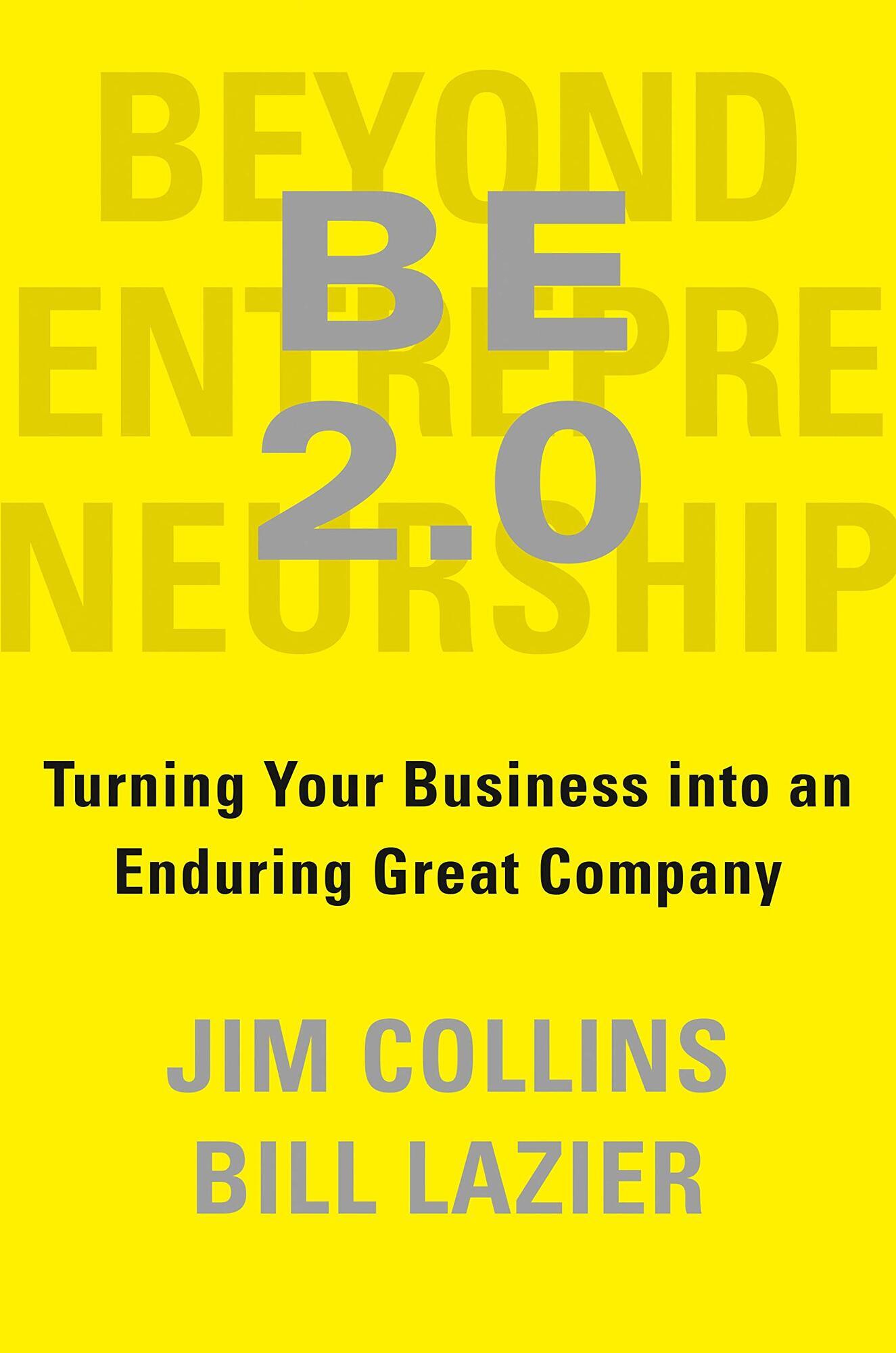This is the first of a series of five blog posts based on Jim Collins & Bill Lazier, BE 2.0: Turning Your Business into an Enduring Great Company (New York, NY: Portfolio / Penguin, 2020). Bill Lazier and Jim Collins co-authored Beyond Entrepreneurship in 1992. Collins has released an expanded second version under a slightly modified name.
 Jim Collins, one of today’s leading management thinkers, is well-known for books such as Good to Great and Built to Last. Collins has recently released, Beyond Entrepreneurship 2.0: Turning Your Business into an Enduring Great Company (New York, NY: Portfolio / Penguin, 2020).
Jim Collins, one of today’s leading management thinkers, is well-known for books such as Good to Great and Built to Last. Collins has recently released, Beyond Entrepreneurship 2.0: Turning Your Business into an Enduring Great Company (New York, NY: Portfolio / Penguin, 2020).
Collins has a unique skill in clearly communicating business concepts and he does so again in this book. In this particular case, he is focused on how to turn a business into an enduring great company. Some of his concepts have been introduced in other books and but he incorporates them into his discussion of entrepreneurship.
Get the right people on the bus. We’ve all heard that one—and it’s worth repeating. “First in importance, above every other activity, is the imperative to get the right people on the bus.” [14] To take the concept further, “You need the right people far more than you need the right business idea…” [15] That will give many pause to reconsider their business strategy.
Another interesting strategic insight relates to financial incentives for key executives. He notes, “In our research, we found no systematic pattern linking executive compensation to the process of companies going from good to great….you cannot turn the wrong people into the right people with money.” [31] That finding has far-reaching implications.
What is his take on leadership? There are as many definitions of leadership as there are relevant gurus—but Collins’ view carries a lot of weight. His definition: “Leadership is the art of getting people to want to do what must be done.” [44]
Collins makes an interesting observation about the role of luck. That begs the question, what is luck? A common refrain is that preparation meets opportunity. Or, in sports, the better someone is the luckier they get. Collins’ view is that a “luck event” meets three criteria: you didn’t cause it; it has a significant potential consequence, and it has an element of surprise [143].
Do some people and companies succeed over others because of more luck? Collins’ insight is that “What the best achieved, instead, was a higher return on luck.” [143] His further conclusion is that “I’ve come to believe that about 50 percent of great leadership is what you do with the unexpected.” [143]
He also notes that bad luck can have its advantages. So, it’s fine to join the Hee Haw refrain of, “If it weren’t for bad luck, I’d have no luck at all, gloom, despair and agony….” Collins explains, “But if you have to overcome failure and bad luck early on, and you mine those experiences for wisdom, you’re more likely to develop the capabilities necessary for enduring success. In the long run, it’s better to experience failure early and learn how to systemically innovate than to merely have one big megahit.” [144] Good wisdom. Another gem: “You can look at life as a search for the one big winning hand, or you can look at life as a series of hands well played.” [144]
Perhaps because of his stature as a business guru, he is comfortable dispensing some pseudo-motivational musings. He provides a good perspective on perseverance: “Most of us get decked somewhere along the way in life, slammed to the ground, the world looking down on us. And when—not if, when—that happens, we have a choice. Do we get back up? And when it happens again, do we get back up again? And again, and again, and again, and again? When I’m feeling clobbered by events, pounded by setbacks, or just flat-out exhausted from dealing with my own mistakes, I think of Steve Jobs, Winston Churchill, and [mountain free climber] Tommy Caldwell. Nor persisting in a grim manner, full of endless suffering, but joyfully and gratefully persisting, fueled by passionately pursuing purposeful work. Life is way too long to give up early and way too short to be derailed from what we’re passionate about and made to do.” [145]
His book emphasizes a key point. Sometimes entrepreneurship is viewed as creative, unstructured and erratic—but somehow a necessary feature of the entrepreneurial life. Collins stresses, however, that “When you combine a culture of discipline with an ethic of entrepreneurship, you create a powerful mixture that drives great performance.” [154]
Collins has an interesting discussion regarding how to ensure you are not detached from reality. [182] He offers three points: first, surround yourself with people who tell it like it is; second, personally stay in touch with what is happening; and, lastly, never punish people for telling the truth.
One of the best lines in the book: “How do you know if you have a truly great business? Warren Buffett has the best answer: You don’t have to hold a prayer meeting to raise prices.” [200]
In short, Beyond Entrepreneurship is well worth reading both for its new insights and for common truths restated in a more captivating manner.

